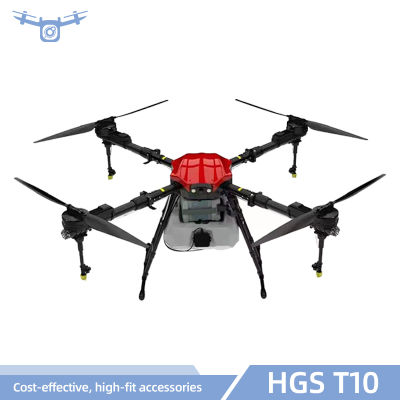Michigan Medicine patients who require specialty prescriptions will be able to get them delivered by drones starting in 2024, the health system said.
The Ann Arbor-based health system has partnered with Zipline, an American company that designs, manufactures and operates autonomous delivery drones. Loading docks, portals and chargers for the drones will be integrated into Michigan Medicine's specialty-care pharmacy in Dexter, which will serve patients with complex and rare diseases. These patients rely on temperature-sensitive medications that require high maintenance and high-cost deliveries, said Dana Habers, chief innovation officer for Michigan Medicine and chief operating officer for pharmacy. Drone Spray Pump Price

Michigan Medicine will be one of the first organizations to use Zipline's home delivery system.
"It doesn't replace our cornerstone or our brick-and-mortar pharmacy footprint ...," Habers said. "It's really that mail order component and primarily relates to specialty pharmacy patients."
Each drone dock has a 10-mile service radius. Drones can fly up to 24 miles on a one-way trip carrying a 6 to 8 pounds of payload, said Conor French, chief regulatory officer at Zipline.
"Platform two is precise enough to deliver to someone's patio table or to their doorstep and it's nearly inaudible, it's designed to actually sound like rustling leaves," French said. "We expect to be able to complete deliveries of 10 miles in 10 minutes. ... Unlike cars and trucks, our zips never get stuck in traffic."
The system also is planning to add drone bases to expand the network and range, said Habers.
"We want to start, you know, with something sensible but there's ways in which we can increase the range based on where loading portals or docks are," French said.
Pharmacists can load medications into a delivery droid in a matter of seconds without leaving the building, French said. The droid will ascend into the zip drone, which then flies to its destination and hovers around 300 feet above it. The delivery droid then can descend and gently land at the exact delivery spot, even in high winds or rain, French said.
The drones feature 97% less emissions than gas-powered vehicles, French said.
"This goes quite quickly from novel to normal," French said.
Drone delivery will be offered to patients for free and is expected to cost the health system less than deliveries using trucks, Habers said. When packages are shipped using trucks, they are sent in a Styrofoam cooler with ice packs designed to preserve the temperature range of the product for 48 hours, Habers said.
"With drone delivery, we anticipate that window being much shorter and so the expectation is that we could partner and work on packaging and actually reduce the amount of Styrofoam and gel packs and other materials that we're wasting," Habers said.
Zipline drones have been used to send products around the world and have flown over 40 million commercial autonomous miles and completed over 500,000 deliveries. They have operated out of seven countries: Ghana, Rwanda, Nigeria, Cote d'Ivoire, Kenya, Japan and the United states, and have delivered blood to hospitals and over 2 million doses of Pfizer's COVID-19 vaccines.
Michigan joins North Carolina, Utah and Arkansas offering Zipline.
Zipline has never had a major safety incident while carrying out a commercial delivery, and French is confident the drones can handle Michigan winters without being grounded.
"We've done a lot of that testing. So we're very confident in the operating envelope for our aircraft that can go down to the coldest temperatures, so we don't anticipate it being grounded for those conditions," French said. "There's ... redundant systems onboard our aircraft to make sure that even if something fails, you generally can still complete the mission."
The drones also can be controlled by a pilot remotely, if necessary, and software tracks them at all times. With drones, the delivery window for prescriptions is precise, as opposed to traditional deliveries, which typically give a range of hours or days. It helps to increase patient equity and access to medications, French said.

Drone Spray Pump Price The drone model will replace truck deliveries for Michigan Medicine's mail-order pharmacy to patients who chose to opt-in, Habers said. It will not be used to transport any controlled substances.